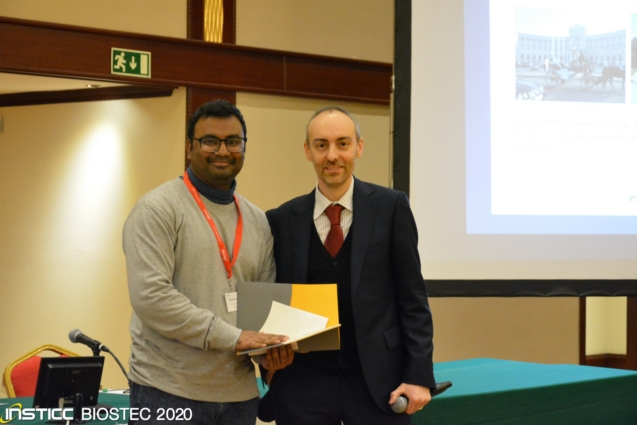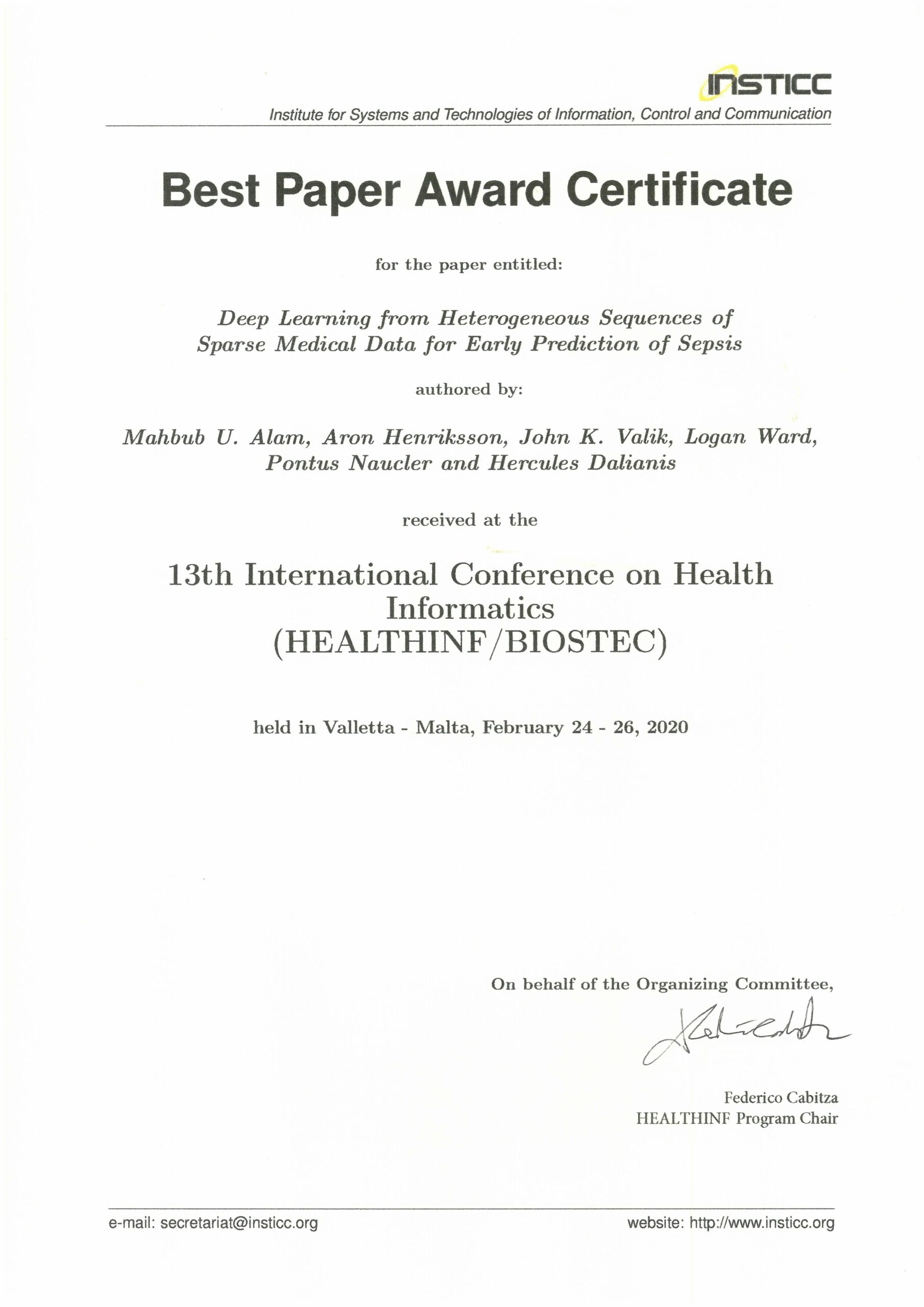Hello Everyone,
Greetings. I hope you are well. I would like to share some very good news with you.
I presented a research paper entitled ‘Deep Learning from Heterogeneous Sequences of Sparse Medical Data for Early Prediction of Sepsis‘ at the 13th International Conference on Health Informatics (HEALTHINF), Malta, Valletta, 24-26 February 2020. HEALTHINF is part of BIOSTEC, the 13th International Joint Conference on Biomedical Engineering Systems and Technologies. It was organized by the Institute for Systems and Technologies of Information, Control and Communication (INSTICC).
The paper won the HEALTHINF 2020 Best Paper Award. The decision criterion considered both the paper quality (assessed by the Program Committee), and the oral presentation quality (feedback given by session chairs at the conference venue). Overall it was an enjoyable experience, and I learned a lot from all.
Want to know more about the paper or sepsis in general? Please check out the following presentation video I made!
Abstract:
Sepsis is a life-threatening complication to infections, and early treatment is key for survival. Symptoms of sepsis are difficult to recognize, but prediction models using data from electronic health records (EHRs) can facilitate early detection and intervention. Recently, deep learning architectures have been proposed for the early prediction of sepsis. However, most efforts rely on high-resolution data from intensive care units (ICUs). Prediction of sepsis in the non-ICU setting, where hospitalization periods vary greatly in length and data is more sparse, is not as well studied. It is also not clear how to learn effectively from longitudinal EHR data, which can be represented as a sequence of time windows. In this article, we evaluate the use of an LSTM network for early prediction of sepsis according to Sepsis-3 criteria in a general hospital population. An empirical investigation using six different time window sizes is conducted. The best model uses a two-hour window and assumes data is missing not at random, clearly outperforming scoring systems commonly used in healthcare today. It is concluded that the size of the time window has a considerable impact on predictive performance when learning from heterogeneous sequences of sparse medical data for early prediction of sepsis.


